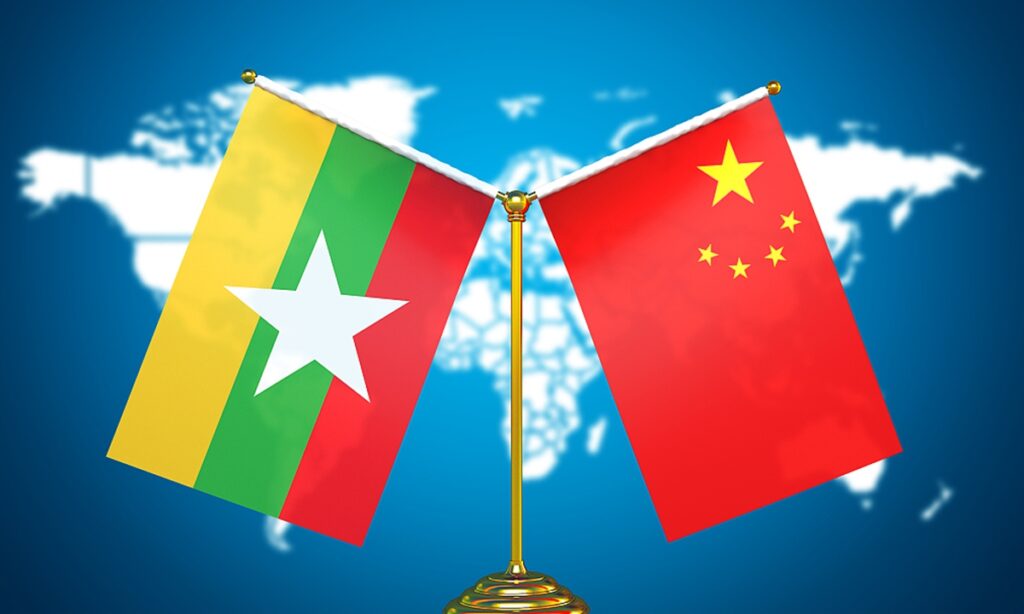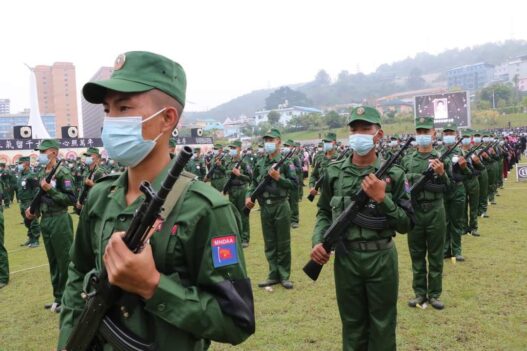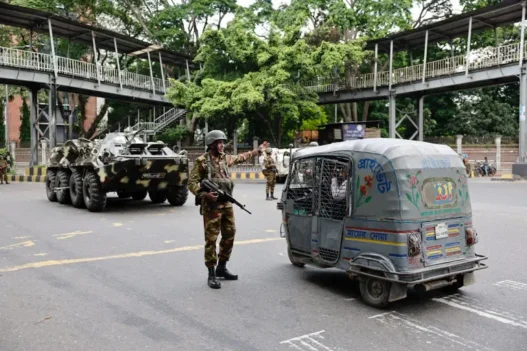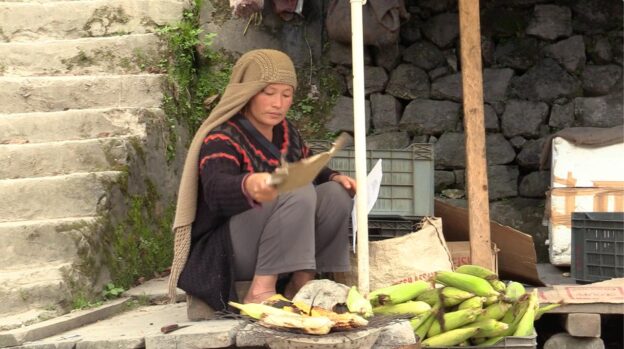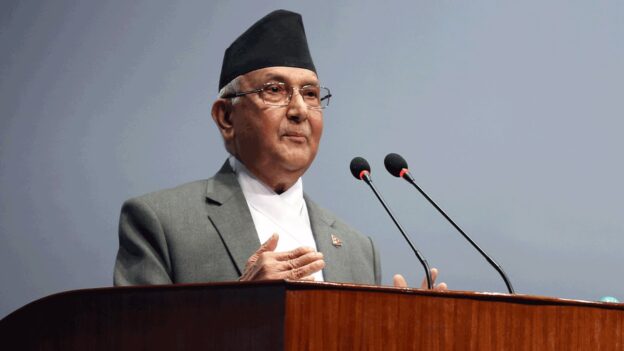As rebel strikes intensify in Myanmar’s Rakhine state, it threatens to escalating and in the process jeorpardise the mammoth Chinese-led investments in vital economic hubs like Sittwe and Kyaukpyu. However, the silence from Beijing’s is rather unpredicted considering how proactive it has always been whenever its own interests faced potential threats of disruptions in Myanmar.
The Chinese have made sure throughout the history of Myanmar’s internal conflicts, that its uses the situation as double edged weapon while at the same time furthering its business interests. Therefore, Beijing’s current passive approach amidst the turmoil in Northern Shan State and Rakhine is prompting questions from those have followed Chinese policies in Myanmar.
In the Northern Shan State for instance violence continues unabated despite attempts at brokering peace by China. There are regular attacks on military installations and fierce battles which has hugely impacted border trade with China. indicating a significant shift in the conflict’s dynamics on the ground, particularly challenging China’s traditional influence over rebel forces, notably the Northern Alliance.
The military junta has been responding to the rebel attacks by launching a series of indiscriminate bombings on resistance groups’ territorial advances in Myanmar’s districts. The military carried out an astounding 588 airstrikes across Myanmar between November 1, 2023, and March 8, 2024, with a noteworthy 19% of those attacks going against targets in Rakhine state.
Recent attacks in Rakhine have further escalated tensions, jeopardising not only Chinese but also Indian investments in the region. The United Nations has condemned Myanmar’s escalating conflict, highlighting its impact on human rights and regional stability. On March 19, 2024, Antonio Guterres, the Secretary-General of the United Nations, called for peace in Rakhine state. Amid reports of indiscriminate bombardments and artillery shelling, Myanmar’s main pro-democracy resistance group claims responsibility for drone attacks on military targets in Naypyitaw.
Following fighting between the armed forces and the United League of Arakan/Arakan Army (ULA/AA) as part of Operation 1027, which was started by the Brotherhood Alliance in October 2023, the aerial bombardment of Rakhine began in November 2023. Since the military coup on February 2021, Myanmar has experienced the worst levels of violence, which has had a major impact on millions of people’s basic needs, fundamental freedoms, and human rights.
Read also: ‘Operation 1027’ and new conflict narrative in Myanmar, where does China stand?
On Thursday, representatives of the United Nations underscored the concerning ramifications of this fighting in the area. In response to the crisis, China pledged on to play a constructive role in stabilising the situation in Myanmar’s Rakhine State. Addressing the UN Security Council, Geng Shuang, China’s deputy permanent representative to the United Nations, outlined China’s stance on the ongoing conflict. Despite this assurance, questions linger regarding Beijing’s efficacy in managing the escalating violence and safeguarding its investments in the region.
Khaled Khiari, Assistant Secretary-General for Political Affairs, briefed the United Nations Security Council on the increasing number of civilian casualties amid allegations of artillery shelling by several factions and indiscriminate bombs by Myanmar’s armed forces.
Since the military overthrew Aung San Suu Kyi’s elected government in February 2021 and put an end to massive nonviolent protests calling for a return to democratic administration, Myanmar has been under a state of widespread armed warfare. The expanding resistance movement has proven difficult for the military to put down, even with its overwhelming advantage in terms of people and weapons.
The military has suffered serious reverses in recent months, giving up land in Rakhine state and coming under attack in other areas. Notably, the main opposition party in Myanmar that supports democracy declared on Thursday that drone attacks were carried out by its armed branch against the city, the airport in Naypyitaw, and a military base. A major challenge to the military’s authority was the assertion that it had intercepted the drones.
Chinese officials characterised the issue as an internal matter of Myanmar, calling for respect for the country’s sovereignty and encouraging communication among the parties involved, as worldwide concern grew over the rising tensions. China’s proactive approach to promoting peace is evident in the fact that a Chinese delegation is actively mediating a resolution to the situation while in Myanmar.
China expressed opposition to proposed sanctions on Myanmar, stating that it believes they would only intensify hostilities, and reaffirmed its commitment to helping the country’s stability and development. Rather, China focused emphasis on the need for communication and mutual understanding in order to foster an atmosphere that is favorable for resolving disputes and facilitating the return of displaced people to their homes. The lack of cessation in attacks despite Chinese-brokered peace agreements suggests a fundamental shift in power dynamics, potentially undermining Beijing’s influence in the region. As the conflict intensifies and regional stability hangs in the balance, all eyes remain on Beijing’s response.

